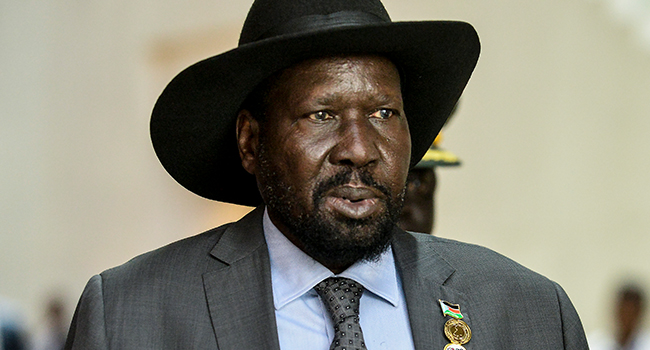Extreme weather patterns attributed to the climate crisis have plunged South Sudan into a hunger crisis of epic proportions, with access to food becoming increasingly scarce, warns the United Nations food agency.
The World Food Program (WFP) has shared alarming information that South Sudan is grappling with a dual catastrophe of drowning and drying, brought on by a series of devastating climate events. Over the past four years, recurrent flooding in the Bentiu region has resulted in the displacement of numerous communities, submerging entire villages, farmlands, and grazing areas, affecting more than a million people.
Compounded by ongoing fighting in Sudan, the situation has been aggravated by the combination of catastrophic floods and severe drought, pushing levels of hunger to unprecedented heights. The WFP reports that almost two-thirds of South Sudan’s population currently faces crisis or worse levels of food scarcity, surpassing even the magnitude seen during the country’s civil war.
Spiraling food and fuel prices, coupled with the ongoing conflict in Sudan, have further exacerbated the situation, deepening the crisis and leaving countless individuals without access to basic sustenance. The availability of food has become increasingly scarce, even for those who were previously able to sustain themselves.
Recognizing the urgency of the situation, the WFP has issued an urgent appeal for funding, calling on the international community to provide an additional $567 million over the next six months. These funds are vital to ensure continuous life-saving assistance and to invest in long-term initiatives aimed at building resilience among South Sudanese communities.
“WFP urgently needs support from the international community to help the people of South Sudan. Providing immediate assistance is crucial to save lives, but we also need to invest in building long-term resilience, so that South Sudanese communities are better equipped to withstand future shocks,” stated Haidar Mohammed Ali, WFP’s Country Director in South Sudan.
To alleviate the immediate suffering caused by the hunger crisis, the WFP is scaling up its operations and mobilizing resources to reach as many vulnerable populations as possible. This includes providing emergency food assistance, nutrition support, and livelihood programs to help communities rebuild their lives and strengthen their resilience against future shocks.
The international community has an indispensable role to play in addressing the crisis in South Sudan. In addition to financial contributions, it is imperative for humanitarian actors to collaborate and coordinate efforts to ensure effective delivery of assistance and maximize their impact on the ground. Governments across the globe are being called upon to contribute generously to the funding appeal, empowering the WFP to fulfill its mission of saving lives and supporting the people of South Sudan.
The hunger crisis in South Sudan is a stark reminder of the immense impact that the climate crisis can have on already vulnerable communities. It underlines the urgent need for global cooperation and concerted efforts to tackle the root causes of climate change and build resilience in regions that are most susceptible to its effects. Failure to act swiftly and decisively will result in more lives lost and further exacerbation of existing crises, jeopardizing the already fragile stability of countries like South Sudan.
Image Credit: MICHAEL TEWELDE / AFP




